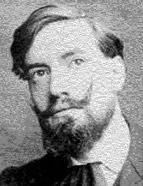

It was necessary to ascertain not only what the sources revealed but also what they concealed, and the reasons behind revealing and hiding information. Satisfying the poet in him, his imagination took over and was channelled towards the plausible. This freedom in fantasizing (to use an expression dear to António Sérgio) would arouse curiosity in the reader - resulting in complicity - in the overall understanding, in which the mysterious and the enigmatic - at first sight - may be rationally explained. Rationality understood as an effort to understand and explain frequently non-rational collective behaviour, which has to be integrated into the whole in order to make sense. Years later he formulated the paradox at the root of the great contemporary historiography: "there are no documents without history."
All documents, each and every one, "correspond to an individual and social state of mind, to a degree of culture, to a system of political or religious ideas or, in other words, to so many other causes that may lead to a distortion of the facts or their outright concealment. Therefore, if we do not investigate the history of the document, that is, the reasons that dictated, clarified or restricted it, we will not have completed the historian's first task - to gather sources." "It is true that, were history understood thus [...], the historian would have to draw on other sciences: generically, geography, the psychology of men and peoples and sociology [...]. The tendency is to widen more and more the circle of understanding of the facts and include them in the integral vision of humanity". (Intodução à História das Bandeiras [Introduction to the History of Flags], vol. I, pp. 11-12). This was the indispensable interdisciplinarity in a comprehensive total history, as proposed by Fernand Braudel, who not by chance admired Cortesão. With some influence from readings in sociology, but above all in agreement with the feeling of the dramatic poet, was his approach to social groups. He found a paradigm, a type, which he then concretised through the contrast he established with the personalities he brought to life (the "touchstone", which he used in another sense in A Expedição...). This was the case of the citizens of Oporto in the Carta de Pêro Vaz de Caminha [Letter of Pêro Vaz de Caminha], the bandeirantes [flag-bearing explorers] of Raposo Tavares e a Formação Territorial do Brasil [Raposo Magalhães and the Territorial Formation of Brazil], the castiços [purebreds] and estrangeirados [those who prefer everything foreign to national], or the Luso-Brazilians of Alexandre de Gusmão e o Tratado de Madrid [Alexandre Gusmão and the Treaty of Madrid] They were, to some extent, typological constructions like those in sociology - although he did not appear to seek the "ideal types" of Max Weber, an author he mentioned in passing towards the end of the 1940s, but above all they were the carpentry work of a playwright calling the comedians to the stage to perform a variety of roles...
